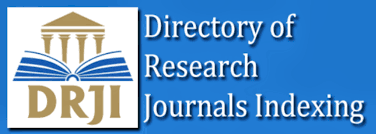"Who doesn't love, doesn't educate”: perceptions about the teacher as an agent of peace in Bié”
Keywords:
Teacher training, Peace education, Ubuntu and researchAbstract
Angola formalised peace in 2002 and is currently characterised as a post-conflict context undergoing a process of sustainable social peacebuilding. It is recognized that education can contribute to the social, economic, and political stability of societies, strengthen social cohesion and support peacebuilding processes in vulnerable contexts. This positive influence can occur primarily through the important role that schools, and particularly teachers, play in the socialisation of children and young people and in the development of values, attitudes and behaviours oriented towards critical thinking and peaceful coexistence. The aim of this paper is to learn about future teachers' perceptions of their role in reconciliation and peacebuilding in Angola and, particularly, in Bié. Adopting a qualitative methodology, a content analysis is made of data collected through focus group discussions with final-year students from two teacher training colleges for primary education. Analysing three thematic clusters that group together what was highlighted by the participants, we discuss the complexity of teachers' identities as agents of peace and, simultaneously, as members of post-conflict society, and conclude about the reconciliatory perspective of the new generations of teachers, about the importance of the social recognition of teachers, the creation of safe relational spaces for dialogue about the past in schools, the reframing of the curriculum and the school as a space for recovering the value of traditional Angolan culture.
References
Angola. Ministério da Educação. (2017). Plano Nacional de Desenvolvimento de Educação - Educar Angola 2030. Luanda: Governo de Angola
Angola. Ministério da Economia e Planeamento. (2018). Plano de Desenvolvimento Nacional 2018-2022. Luanda: Governo de Angola.
Angola (2020). Decreto Presidencial nº 100/20, de 14 de abril. Aprova a Estratégia Nacional dos Direitos Humanos. Diário oficial da República de Angola: I Série. Nº 48, I Série, 2513-2540. Luanda: Imprensa Nacional-EP
Bardin, L. (2011). Análise de Conteúdo. Lisboa: Edições 70
Bellatalla, L. & Genovesi, G. (2018). Peace, War and Education: Theoretical theses and practical suggestions. Educação, Sociedade e Culturas, 53, 11-25. DOI: https://doi.org/10.34626/esc.vi53.62
Brown, G., Langer, A., Stewart, F. (2011). A Typology of Post-Conflict Environments. Centre for Research on Peace and Development (CRPD). University of Leuven
Camões ICL (2019-2020). Cooperação para o Desenvolvimento de Qualidade: um estudo de caso sobre a formação de professores na província do Bié. Projecto de Investigação, CIIE/FPCEUP, ENSP
Página web: https://www.fpce.up.pt/ciie/?q=content/coopera%C3%A7%C3%A3o-para-o-desenvolvimento-de-qualidade
Candau, V.M.F. (2016). "Ideias-força" do pensamento de Boaventura Sousa Santos e a educação intercultural. Educação em Revista, 32(1), 15-34. DOI: https://doi.org/10.1590/0102-4698140011
Carvalho, P. (2002). Angola, quanto tempo falta para amanhã? Reflexões sobre as crises política, económica e social. Lisboa: Editora Celta
Cavalcante, V.C., Marinho, P. (2019). Descolonização curricular em uma escola Quilombola – uma possibilidade de mais justiça curricular e social. Revista e-Curriculum, 17(3), 963-989. DOI: https://doi.org/10.23925/1809-3876.2019v17i3p963-989
Chabal, P. (2002). A History of Postcolonial Lusophone Africa. London: Hurst & Company
Charmaz, K. (2006). Constructing Grounded Theory: A Practical Guide Through Qualitative Analysis. London: SAGE Publications
Comerford, M. (2005). O rosto pacífico de Angola: biografia de um processo de paz (1991-2002). Windohek, Namíbia: John Meinert Printing.
Eze, M. O. (2011). I am because you are - A theory of an african humanism. The UNESCO Courier, 64(4), 10-13.
Ferreira, P. (2012). Entre o Saber e o Fazer: A Educação na Cooperação Portuguesa para o Desenvolvimento. Campanha Global pela Educação (CGE). Lisboa: Fundação Gonçalo da Silveira.
Frère, M-S., Wilen, N. (2015). INFOCORE Definitions: “Post-conflict”. Bruxelles: ULB
Galtung, J. (1976). Peace, war and defence: Essays in peace research. Vol. 2. Copenhagen: Ejlers.
Horner, L., Kadiwal, L., Sayed, Y., Barrett, A., Durrani, N., & Novelli, M. (2015). Literature Review: The Role of Teachers in Peacebuilding. New York: UNICEF
Howen, N. (2001). Peace-Building and Civil Society in Angola: A Role for the International Community. London: Department for International Development and Foreign and Commonwealth Office
INEE, Rede Inter-Institucional para a Educação em Situação de Emergência (2013). INEE Guidance Note on Conflict Sensitive Education. INEE
Kajibanga, V. (2003). Tradição, Educação e Dimensão Cultural de Desenvolvimento. Notas avulsas para uma perspectiva sociológica do caso angolano. Kulonga - Revista das Ciências da Educação e Estudos Multidisciplinares, 2, 14-28
Lederach, J.P. (1995). Preparing for peace: Conflict transformation across cultures. Syracuse: Syracuse University Press
Lederach, J.P. (1997). Building peace: Sustainable reconciliation in divided societies. Washington DC: United States Institute of Peace Press
Lederach, J.P. (2005). The Moral Imagination - The art and soul of building peace. Oxford: Oxford University Press.
Lopes Cardozo, M.T.A., & Shah, R. (2016). ‘The fruit caught between two stones’: the conflicted position of teachers within Aceh’s independence struggle. Globalisation, Societies and Education, 14(3), 331-344. DOI: https://doi.org/10.1080/14767724.2016.1145572
Lopes, A., Pereira, F., Ferreira, E., Silva, M.A., & Sá, M.J. (2007). Fazer da Formação um Projecto – Formação Inicial e Identidades Profissionais Docentes. Lisboa: Legis Editora
Marinho, P., Delgado, F. (2019). A curriculum in vocational courses: the recognition and (re)construction of counterhegemonic knowledge. The Educational Forum, 83 (3), 251-265. DOI: https://doi.org/10.1080/00131725.2019.1599650
Martins, V. (2015). Ovimbundu Identity Attributions in Post-War Angola. Journal of Southern African Studies, 41 (4), 1-15. DOI: https://doi.org/10.1080/03057070.2015.1052625
Monteiro, C. (2004). Paz e Reconciliação. In G. Meijer (Ed.), Da paz militar à justiça social? O processo de paz angolano (pp 66-67). Londres: Conciliation Resources.
Neves, T. (2012). Angola – Justiça e Paz nas intervenções da Igreja Católica (1989-2002). Alfragide: Texto Editores
Novelli M., & Sayed Y. (2016). Teachers as agents of sustainable peace, social cohesion and development: theory, practice and evidence. Education as change, 20 (3), 15-37. DOI: http://dx.doi.org/10.17159/1947-9417/2016/1486
Novelli, M., Lopes Cardozo, M.T.A, & Smith, A. (2017). The 4RS Framework: Analyzing Education’s Contribution to Sustainable Peacebuilding with Social Justice in ConflictAffected Contexts. Journal on Education in Emergencies, 3(1): 14-43. URI: http://hdl.handle.net/2451/39660
PEIC, Protection Education in Insecurity and Conflict (2013). Learning to Live Together. Education for Conflict Resolution, Responsible Citizenship, Human Rights and Humanitarian Norms. Doha: Education Above All.
Pimenta, J.S. (2018). Educação para a paz: construir o mundo que se espera. Educação, Sociedade e Culturas, 53, 83-96. DOI: https://doi.org/10.34626/esc.vi53.66
Poças, S. (2019). Formação de professores em Angola: conceções e práticas em contexto de cooperação para o desenvolvimento. (Tese de Doutoramento). FPCE/ Universidade do Porto. URI: https://hdl.handle.net/10216/123471
Rubagiza, J., Umutoni, J., Kaleeba, Ali. (2016). Teachers as agents of change: promoting peacebuilding and social cohesion in schools in Rwanda. Education as Change, 20 (3), 202-224. DOI: http://dx.doi.org/10.17159/1947-9417/2016/1533
Santos, B.S. (2010). Descolonizar el saber, reinventar el poder. Uruguay, Montevideo: Ediciones Trilce.
Santos, B.S. (2014). Epistemologies of the South: Justice against Epistemicide. Boulder, CO: Paradigm Publishers
Shannon, R. (2003). Peacebuilding and Conflict Resolution Interventions in Post-Conflict Angola: NGDO’s Negotiating Theory and Practice. Trocaire Development Review, 33-55.
Schubert, J. (2015). 2002, Year Zero: History as Anti-Politics in the ‘New Angola’. Journal of Southern African Studies, 41 (4), 1-18. DOI: https://doi.org/10.1080/03057070.2015.1055548
UCAN. (2016). Relatório Social de Angola. Centro de Estudos e Investigação Científica da Universidade Católica de Angola (CEIC-UCAN).
Volmink, J. (2019). Ubuntu: Filosofia de vida e ética social. In Consórcio “Ubuntu Building Bridges for Peace” (Ed.), Construir Pontes Ubuntu - Para uma liderança servidora (pp.47-68). Lisboa: IPAV
Weldon, G. (2010). Post-conflict teacher development: facing the past in South Africa. Journal of Moral Education. 39 (3), 353-364. DOI: https://doi.org/10.1080/03057240.2010.497615
Downloads
Published
How to Cite
Issue
Section
License
Copyright (c) 2022 Joana Manarte, Angélica Cassova, Júlio Santos

This work is licensed under a Creative Commons Attribution-NonCommercial-ShareAlike 4.0 International License.















